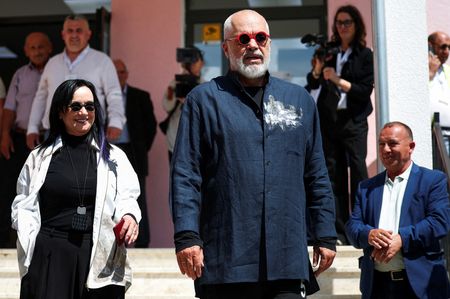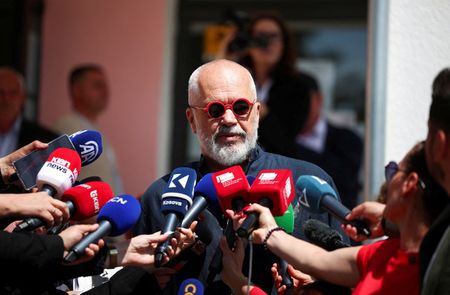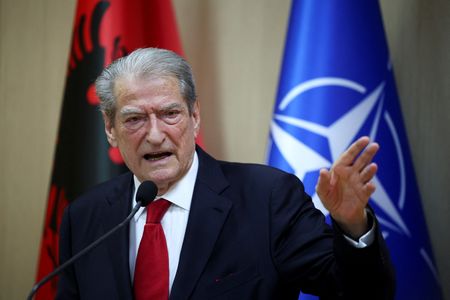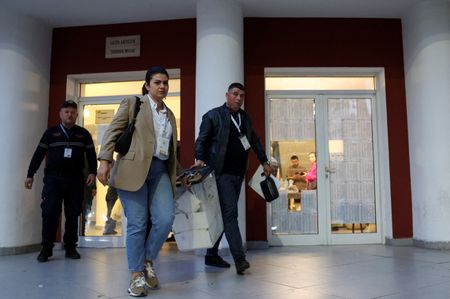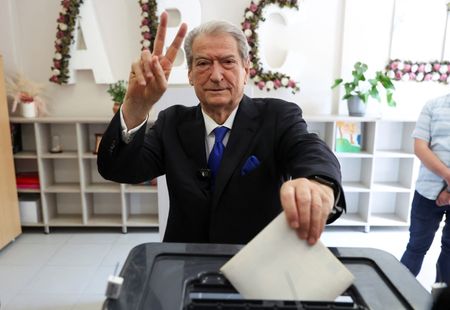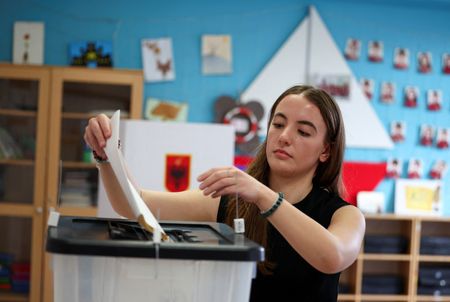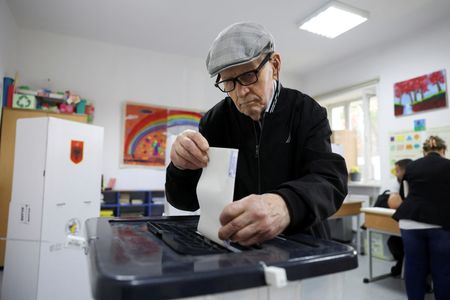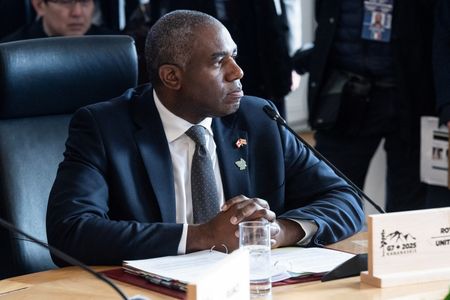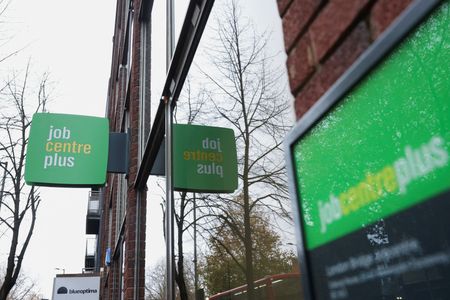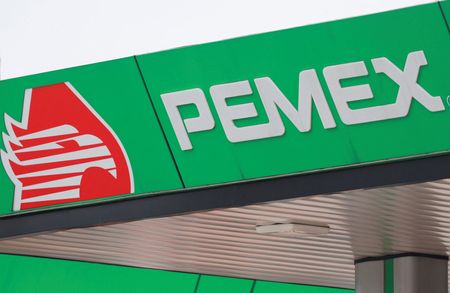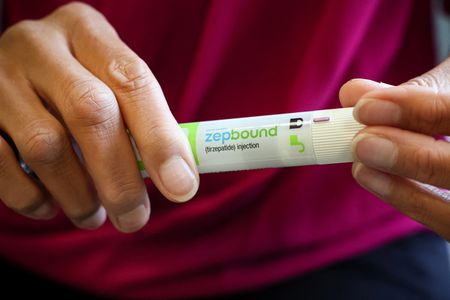By Fatos Bytyci and Edward McAllister
TIRANA (Reuters) -Albanians voted in parliamentary elections on Sunday with prime minister Edi Rama seeking an unprecedented fourth term after a campaign dominated by promises to join the European Union and accusations of widespread corruption.
Polling stations closed at 7 p.m. Results will be published by Tuesday, said the head of the Election Commission Ilirjan Celibashi.
Rama, in power as head of the Socialist Party (PS) since 2013, is favourite to win against his old rival, former prime minister Sali Berisha of the Democratic Party (PD), bolstered in part by an influential network built over 12 years in power, a recent period of healthy economic growth and a largely popular image abroad.
But opposition to Rama has intensified in the past year over a perceived crackdown on the opposition, including Berisha, while Rama weathered a series of scandals of his own. These include the arrest of his ally, the mayor of Tirana Erion Veliaj, this year on allegations of corruption and money laundering.
Veliaj and Berisha deny wrongdoing.
Rama has spent the last week reiterating his promise to join the EU by the end of the decade, although some experts doubt that timeline will be possible given the reforms required to join the bloc, including eradicating graft.
One exit poll, for the Tirana-based news portal Albanian Post and the Kosovo-based Klan Kosova TV, showed Rama’s party getting 51.8% of the vote or 79 seats in the 140-seat house and Berisha 38% or 54 seats. Berisha said the poll was pro-Rama.
Three TV stations told Reuters they had decided not to release exit polls, citing procedural or legal issues.
Opinion polls have shown Rama winning up to 50% of the vote and Berisha up to 35%. Rama may need help from smaller parties to maintain his parliamentary majority.
“Today the Albanian people will … give us all the strength we need to make Albania the next European member state,” Rama said after voting.
Berisha also backs Albania’s EU aspirations and has promised to fight corruption and increase wages.
“It’s going to be a new summer day for Albanians,” he told Reuters.
About 200,000 Albanians living abroad voted on Sunday, the first time the diaspora has been included in the process.
Many young voters especially are tired of the likes of Berisha and Rama who have run the country in various roles since the fall of communism in 1990. They point to Albania’s stark income inequality that sees some people drive expensive Range Rovers around Tirana while others live in cramped Soviet-era housing.
“I will vote for new politicians because those like Rama and Berisha have been here for three decades and they only replace themselves,” said Arber Qazimi, 21, earlier.
Some other voters abstained or looked to join the hundreds of thousands of Albanians who have emigrated over the past decade, many of them to nearby EU countries.
By some measures, Rama has done well. Annual economic growth above 4% for 2022-2024, driven by trade with the EU and a tourism boom, has outstripped other Balkan countries, the World Bank says.
But corruption remains a huge problem, experts say, driven by criminal gangs who make billions of euros from drugs and weapons trafficking abroad and bring it back to Albania to be laundered.
(Reporting by Edward McAllister and Fatos Bytyci; Writing by Edward McAllister and Renee Maltezou; Editing by Elaine Hardcastle and Giles Elgood)

